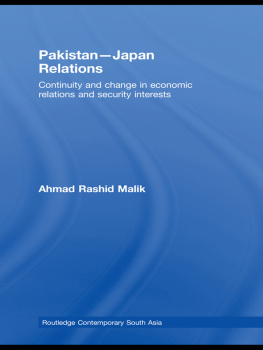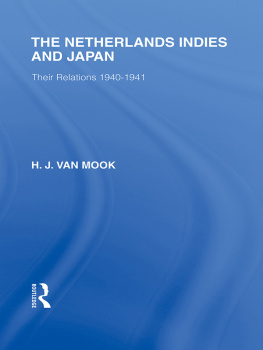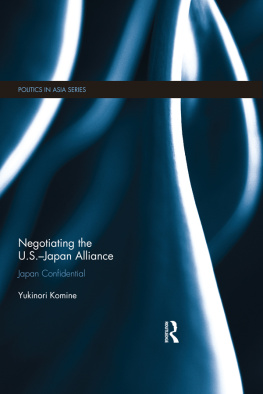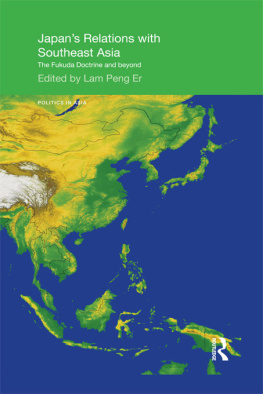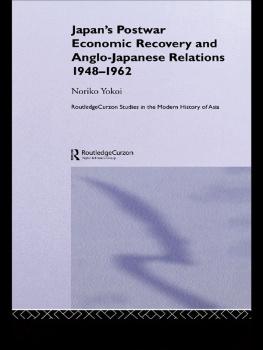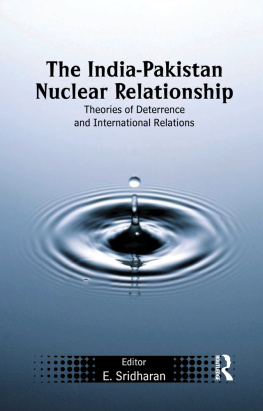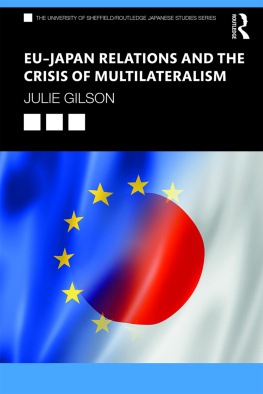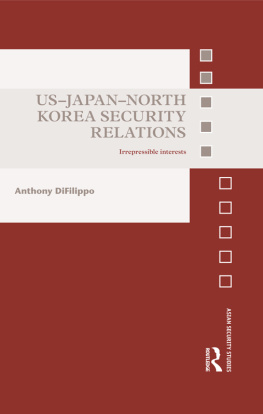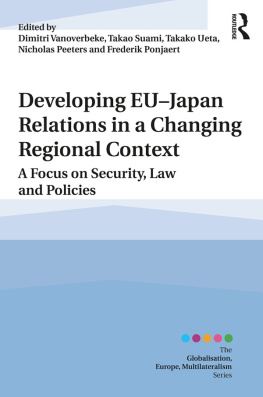PakistanJapan Relations
This is the first book-length study to explain the complex nature of PakistanJapan relations. It analyzes the evolution and development of relations between the two countries by defining two key factors: economic interests and security concerns in the US-led global security system. Providing a thorough analysis of the history of relations between the countries, the important role Pakistan played in the context of peace and conflict resolution in East Asia during 194752, which helped to end the Occupation of Japan and restore the countrys postwar economy, is highlighted. Pakistan then emerged as the largest trading partner of Japan only after the United States. It was Pakistans benevolent role that helped Japan to return to Asia in the 1950s, as the author explains in greater detail than is commonly known. In the 1960s, and also in the 1980s during the Soviet occupation of Afghanistan, Pakistan emerged as one of the largest recipients of Japanese aid.
The author explains that Japanese strategic aid to Pakistan was diverted to strengthen democratic values and institutions after the end of the Cold War. He then clarifies that PakistanJapan relations were dominated by two main issues during the 1990s; Japanese economic cooperation in Pakistans trade liberalization, and suspicion about Pakistans nuclear program. In conclusion, the author states that there has been a remarkable continuity in the area of economic relations, though there have been changes in security concerns.
The book sets out future prospects for economic and diplomatic relations between the two countries, and it will be of interest to academics working in the fields of International Relations, International Political Economy, and Asian Studies. For intellectuals, diplomats, and businessmen, the book would be a handy reference.
Dr Ahmad Rashid Malik is currently working as Research Fellow for the Islamabad Policy Research Institute (IPRI), Pakistan. He earned his PhD from La Trobe University, Melbourne, Australia, and MA from the International University of Japan, Niigata, Japan. His area of interest is East Asia with a focus on international political economy and Pakistans choices in this wider region of the Asia-Pacific. He regularly writes on current issues for Pakistans daily the Nation and academic journals. Previously, he worked as Economic Adviser/ Analyst for Daewoo Pakistan.
Routledge contemporary South Asia series
- Pakistan
Social and cultural transformations in a Muslim nation
Mohammad A. Qadeer
- Labor, Democratization and Development in India and Pakistan
Christopher Candland
- ChinaIndia Relations
Contemporary dynamics
Amardeep Athwal
- Madrasas in South Asia
Teaching terror?
Jamal Malik
- Labor, Globalization and the State
Workers, women and migrants confront neoliberalism
Edited by Debdas Banerjee and Michael Goldfield
- Indian Literature and Popular Cinema
Recasting classics
Edited by Heidi R. M. Pauwels
- Islamist Militancy in Bangladesh
A complex web
Ali Riaz
- Regionalism in South Asia
Negotiating cooperation, institutional structures
Kishore C. Dash
- Federalism, Nationalism and Development
India and the Punjab economy
Pritam Singh
- Human Development and Social Power
Perspectives from South Asia
Ananya Mukherjee Reed
- The South Asian Diaspora
Transnational networks and changing identities
Edited by Rajesh Rai and Peter Reeves
- PakistanJapan Relations
Continuity and change in economic relations and security interests
Ahmad Rashid Malik
PakistanJapan Relations
Continuity and change in economic relations and security interests
Ahmad Rashid Malik
First published 2009
by Routledge
2 Park Square, Milton Park, Abingdon, Oxon OX14 4RN
Simultaneously published in the USA and Canada
by Routledge
270 Madison Ave, New York, NY 10016
Routledge is an imprint of the Taylor & Francis Group, an informa business
This edition published in the Taylor & Francis e-Library, 2008.
To purchase your own copy of this or any of Taylor & Francis or Routledges collection of thousands of eBooks please go to www.eBookstore.tandf.co.uk.
2009 Ahmad Rashid Malik
All rights reserved. No part of this book may be reprinted or reproduced or utilized in any form or by any electronic, mechanical, or other means, now known or hereafter invented, including photocopying and recording, or in any information storage or retrieval system, without permission in writing from the publishers.
British Library Cataloguing in Publication Data
A catalogue record for this book is available from the British Library
Library of Congress Cataloging in Publication Data
Malik, Ahmad Rashid.
PakistanJapan relations: continuity and change in economic relations and
security interests/Ahmad Rashid Malik.
p. cm. (Routledge contemporary South Asia series; 12)
Includes bibliographical references and index.
1. PakistanRelationsJapan. 2. JapanRelationsPakistan. 3. PakistanForeign economic relationsJapan. 4. JapanForeign economic relationsPakistan. 5. National securityPakistan. 6. National securityJapan. I. Title.
DS383.5.J3M35 2008
303.4825491052dc22 2008009752
ISBN 0-203-89149-X Master e-book ISBN
ISBN10: 0-415-46279-7 (hbk)
ISBN10: 0-203-89149-X (ebk)
ISBN13: 978-0-415-46279-2 (hbk)
ISBN13: 978-0-203-89149-0 (ebk)
For
Professor Robin Jeffrey
Figures
Pakistans trade balance with Japan during 194757
Pakistans accumulated percentage share of Japans ODA during 196170
Pakistans trade balance with Japan during 195870
Pakistans trade balance with Japan during 197177
Pakistans trade deficit with Japan during 197888
Pakistans Foreign Direct Investment (FDI) during 198997
Japans Foreign Direct Investment in Pakistan during 198997
Pakistans trade balance with Japan during 198997
Pakistans exports to Japan during 19982006
Pakistans imports from Japan during 19982006
Japans Foreign Direct Investment in Pakistan during 19982007
Tables
Pakistans exports to and imports from Japan during 194751
Japans share of Pakistans exports to East Asia during 194751
Japans share of Pakistans imports from East Asia during 194757
Reparations, assistance, and grants
Pakistans exports to and imports from Japan during 195257
Japans share of Pakistans exports to East Asia during 194757
Japans share of Pakistans imports from East Asia during 195257
Japans official development assistance to Pakistan during 196170
Pakistans exports to and imports from Japan during 195871
Japans percentage share and ranking of Pakistans global exports and imports during 195870
Japans share of Pakistans exports to East Asia during 195870
Japans share of Pakistans imports from East Asia during 195870
Japans official development assistance to Pakistan during 197177
Pakistans exports to and imports from Japan during 197177

